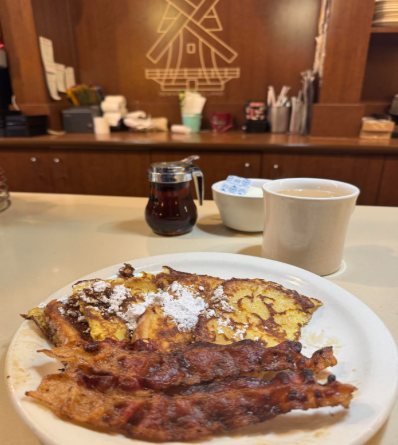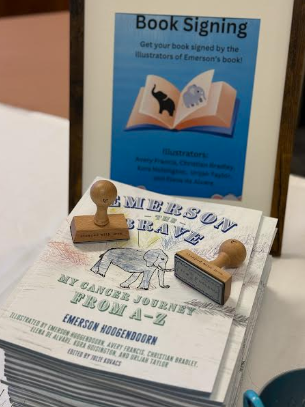As the students walk sluggishly into their fourth hour, hungry and tired, they’re greeted with a burst of energy that is instructor Patrick Foley. He gives them the biggest smile possible and tells them that they’ll be spending the first few minutes of class watching a pantomime acting video. Pantomime? Most of the students have no idea what that is, so they’re instantly intrigued. What’s better than watching a video in class? Though the idea of standing under show lights, and reciting lines may not appeal to all students here at West Ottawa, the structure of the class provides a unique experience.
Foley has been teaching at WO for 21 years, and for him, theater means more than memorizing lines and setting up props.“Theater allows us to take a close up look at people and situations. You can look at a person’s life, see how they would handle one situation versus another, and understand what motivated them to make the decisions they did,” Foley said. When students have to sit and learn about another character, it brings the class together. “To create another character, you have to look deeply into life and humanity. So if we’re in class, it gives my students a chance to empathize and connect with different kinds of people, and explore different walk ways of life.” Foley wants acting to be a chance for his students to reach into their minds and to work out their imagination.
After studying drama in college, Foley has a deep passion for theater and wants his students to enjoy and understand it like he does. Because of this passion, he structures his class like a director would direct a play, using more hands on communication with the students. He gives the students a lot of freedom to explore their creativity during class. Foley tells them, “You can’t call yourself a performer until you perform in front of an audience.” His curriculum consists of different lessons like storytelling and pantomime acting that exercise the body language, the tone, and the voice of the actor. He requires his students to perform some of their scenes in front of different classes.This shakes the nerves of a lot of people, takes them out of their comfort zones, and makes them worry about embarrassing themselves. In Foley’s class, there’s a real loving and accepting environment so it makes getting in front of a class easier.
Students taking this class have more chances to take their education into their owns hands. The class has its educational aspects with teaching students about how theater came to be in ancient Greece, and how it has developed over time with the help of new ideas. The hands on work and participation separates it from other classes, and makes taking this class a unique experience. Junior Tony Rodriguez is currently taking the class and thinks that every student should take it. “This class helps you interact with people more, and gives people that are shyer than others an opportunity to become comfortable with public speaking,” Rodriguez said. He says that he’s met a lot of new people, and sees how others think differently based on how they portray a scene in class. “When I first signed up for this class, I expected it to be like an episode of Victorious. It’s somewhat like it, but not as wild. Personally, I like getting up and actually participating in what I’m learning instead of reading from a book,” Rodriguez said he agrees with Foley that to teach a theater class, getting the students involved makes it better for everybody. Sophomore Crystal Santoyo says, “You never know what exercise Mr. Foley has planned to teach a subject so it makes coming to class exciting every day.” Having a class structure that isn’t so planned out and basic makes the students want to go, and keeps them more interested to see what’s next.
Even though WO’s theater class doesn’t get the recognition that is deserves, it certainly gives students a different way to take on education with more hands on learning. Taking this class helps with social skills, body language and tone of voice. Making students perform in front of other classes pushes them out of their comfort zone, but the loving and accepting environment helps them become more comfortable with the idea of public speaking.






